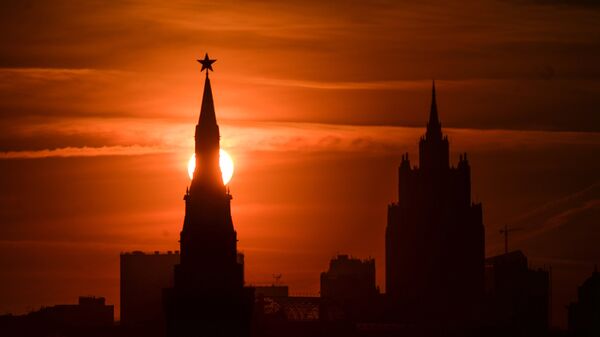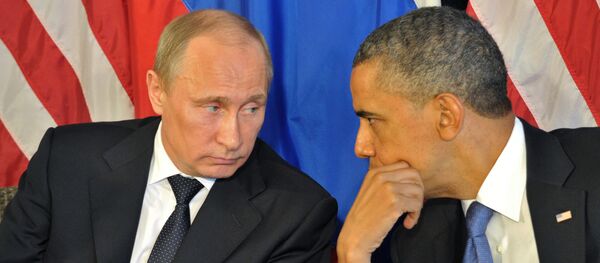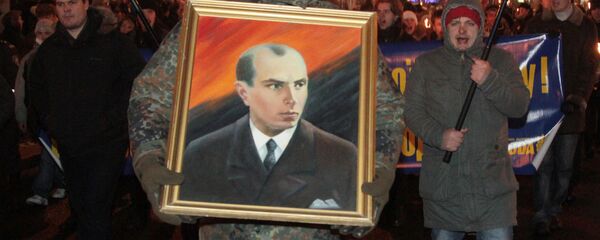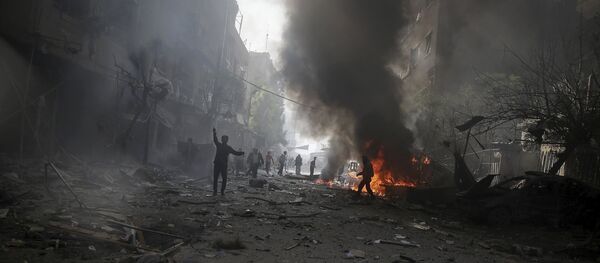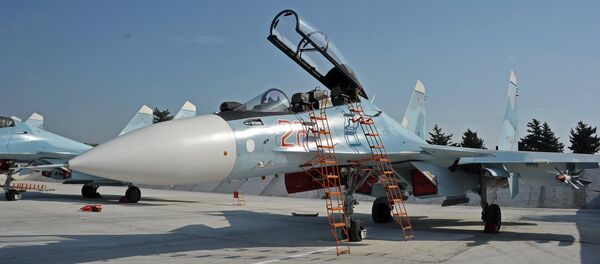In his interview with RSN, which took place Thursday, Dolgov wasted no time in getting to the year's main events. "I think that the biggest success of 2015, when it comes to foreign policy, was our military counter-terrorist operation in Syria, our country's real blow against Daesh (ISIL/ISIS), al-Nusra Front, and other terrorist groups, and our demonstration of Russia's leadership in the fight against terrorism," he noted.
Syria: Russia Demonstrates Leadership in the Fight Against Terrorism
Russia, Dolgov suggested, has provided "real, and not imaginary leadership, as in the case of the US-led coalition, which has done very little of note –anything tangible or practical, to suppress the hotbeds of terrorism and extremism in the Middle East and North Africa."
"We will hope," Dolgov noted, "that in 2016, the fight against terrorism will become even more effective, and that progress will be made in uniting the efforts of multiple nations in the creation of a broad coalition, something Russia has called for."
"We have many supporters in this area, and this is extremely important, because every day that the terrorists are active means new civilian casualties – the killing of women, children, old people, civilians, destroyed churches, shrines and mosques, casualties among the Kurds, Sunnis, the representatives of different ethnic and religious groups. This is all a colossal price to pay for the international community, by the world at large."
"Against this background," the official noted, "any move – any increase in the effectiveness of efforts to combat terrorism and extremism are of great importance. It is of huge importance that those approaches which Russia has formulated and expressed in this area have been met with growing support."
Double Standards on Human Rights
Asked by his interviewer what he believed was the 'main foreign policy failure' of 2015, Dolgov suggested that it was a global one — specifically, the contradictory positions taken by many Western countries on the issue of human rights.
"I believe that the main failure has been the double standards which continue to be displayed in the area of human rights and the rule of law – the double standards of Western nations – the United States, the European Union and other Western countries," the human rights ombudsman said.
"So far," the world "has not been able to get rid of these corrupted approaches. Among the leaders of Western countries there seems to be no political will to bring about a turning point. There are many examples, but one of the most vivid and negative is Ukraine" (a country whose rights situation Mr. Dolgov has been reporting on since shortly after the beginning of the political crisis there in 2014).
"Authorities clamped down on freedom of speech and expression and threw political opponents into jail at the start of the year, and continued to do so at the close of 2015, and I consider this a negative result."
For their part, Dolgov suggested, Western politicians, international organizations and human rights group, "who Kiev listens to very carefully," have not made an effort to resolve these abuses.
A Ray of Hope?
Not wanting to leave the Ukrainian issue on a sour note, Dolgov pointed out that 2015 did also see a few rays of sunshine, specifically by the signing of and efforts to implement the Minsk Agreements. In 2016, Dolgov hopes that the agreements "will pick up momentum, resulting in real progress on their implementation, which will undoubtedly have a positive impact in the area of human rights."
Democracy Cannot Come by Bomb
Commenting on RSN radio's nominations for the foreign policy quote of the year, where President Putin's statement at the UN General Assembly in September – 'Do you realize what you have done?' was a big hit among listeners, Dolgov recalled why that may have been the case.
"This is a key precept of the president – his assessment of the flawed practice on the export of democracy – the export of Western templates, issues of human rights and the building of democratic, civil societies."
"All of these attempts," Dolgov noted, were part of an effort "to impose these templates by force –via the overthrow of legitimate governments –whether in Yugoslavia, Iraq, Libya, or what almost happened in Syria, had it not been, first and foremost, for Russia's principled stand."
Suggesting that the time has now arrived for the world to start sorting through the mess which has resulted, Dolgov noted that for its part, "Russia is actively involved; we cannot do anything except participate, as we feel a sense of responsibility… Therefore, the president's assessment is not just a collection of pretty words. It is a straightforward, clear signal to the West on the need to curtail its harmful policy –its double standards, and its policy of overthrowing regimes it considers undesirable."
Analysis
In his analysis of Mr. Dolgov's interview, published on the website of popular Russian business magazine Expert, Russian journalist and geopolitical analyst Gevorg Mirzayan generally agreed with the rights representative's assessment, suggesting only that some of his formulations could use a bit more nuance.
On Syria for instance, Mirzayan suggested that when it comes to Russia's success in Syria, "what's important is not the status of 'leader', which the world never offered to Russia and which, for the most part, Russia does not need."
"The dividends of this success have come, first and foremost, with the sharp improvement of Russia's image in the international arena," the journalist noted.
"The image, created by Western propaganda, of a Russian bogeyman looking to seize Ukraine, the Baltics and other neighboring countries, has been chipped. And through the crack, the people of Western countries have seen a country that has rolled up its sleeves and taken up the fight against the terrorists – not against disagreeable dictators or rebel movements fighting for power, but real terrorists who profess an anti-civilizational and misanthropic ideology."
"Moreover," Mirzayan noted, "the Kremlin did not just join the fight, but joined politely –agreeing on its participation with the US and Europe, searching for common ground and reaching a framework for agreement regarding the Syrian president and the opposition. This is not a sign of weakness, but the behavior worthy of a mature and responsible power. This serious blow to Western propaganda itself is what has served as the main achievement of Russian foreign policy over the last year."
The same, the analyst noted, can be said of the Minsk Agreements surrounding Ukraine. "Contrary to the wailing of patriots, who called the document a capitulation, Moscow managed to force its Western partners and Ukraine's leadership to sign a roadmap on the federalization of Ukraine, including agreement that if such a federalization does not take place, neither Lugansk or Donetsk will return to Ukraine. Now all that is necessary is to wait until conditions are favorable for the agreements' implementation."
"As far as failures are concerned," Mirzayan noted, "2015 did not see any outright failures. Mr. Dolgov's suggestion of the West's 'double standards' are actually a common practice in diplomacy…And that the West has not given up the practice of double standards in Ukraine is not a failure of Russian diplomacy, but, in the worst case, the failure of someone's dreams or expectations."

